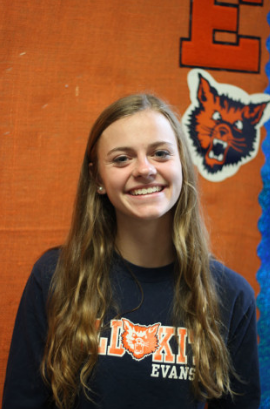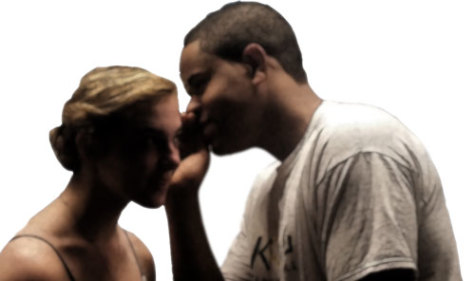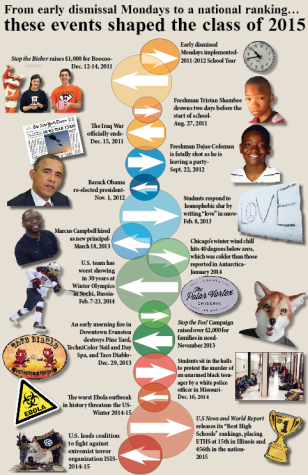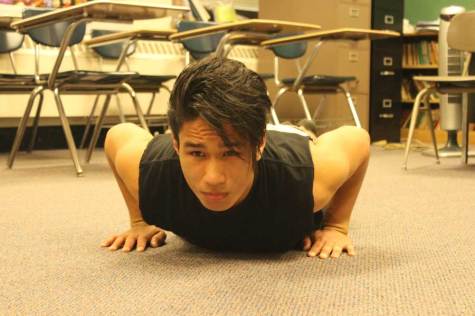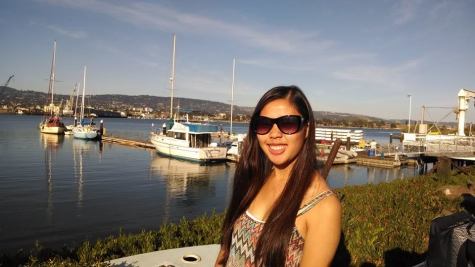Talk like a wildkit
Evanston students create their own slang terms
You may not realize you sound strange to outsiders, but Evanston students use words that they have created themselves that replace the typical adjectives, verbs and nouns that the majority of America uses.
“The slang that has been used as of late is derogatory and hurtful,” states ETHS Security Guard Carlton Rosemond. “The weird thing is, the students don’t see it that way. They view it as funny and somewhat comical.” Many of the terms that are popular today are rude in the most literal sense, but they switch so often and are used so lightly that most people brush them off as harmless.
Slang changes very quickly and while some terms are popular for longer, others fade away quickly. “In middle school we were saying tweaking, swag, and now we’re saying lacking, clout, tweaking, and merch,” states sophomore Roman Gomez. “I think grades use different slang terms though there are certain words that are commonly used in Evanston between all grades.”
Lots of students acknowledge the terms and know the definitions, but many people choose not to use a lot of them. “When I hear people using slang a lot in a sentence I think it sounds funny and I wonder why they’re talking like that, but sometimes it’s funny,” states junior Caroline Moore.
Many slang words that Evanston students use stand for illegal actions such as smoking and drinking. Instead of asking someone if they smoke, students might ask ‘do you smy?’. When someone is high they can also call themselves zooted. Other terms such as brew stands for beer and open crib, commonly abbreviated OC, stands for that someone’s parents aren’t home so people can come over to drink and/or smoke. A banger is much bigger than an OC and is a large party, usually with a lot of drinking.
There is also specific party talk that is used that may be unfamiliar to some. Ruit and on tables are other words for playing beer pong and when people are drunk they might say they are gerbed or slapped. When a party is popped or fedded it means the police show up, and other terms for the police include opp and the cops. The slang word copping is used when someone is able to buy alcohol for a group of people.
“As a kid growing up in Evanston we didn’t necessarily have our own slang terms other than referring to Evanston as ‘the town’,” states Rosemond. Using the slang term ‘the town’ when referring to Evanston is not popular anymore and proves that slang changes constantly and so it makes sense that slang even from last year might have lost its popularity.
Students also use slang relating to relationships. The word hook up is a vague term that can describe anything from making out to having sex. Bae is another word for baby that two people dating might calling each other, and a person might also ask someone else if they are onski, meaning they like someone else.
People use the term thot to describe a girl, which is an acronym meaning “that hoe over there”. It seems very degrading but students use it lightly. They also use the word therm, which is a more intense version of the word thot. The term on fleek is also a description that is generally used in the context of eyebrows that means on point.
Tweaking is a common term used to express that someone is messing up, and when someone had an argument and holds a grudge against someone they might say ‘I have beef with him’. Stain is also a common word and someone might ask ‘should I stain that?’ when talking about stealing or taking an object.
Urbandictionary.com is a website where people can post definitions of colloquialisms that they hear. It defines slang as “the only reason Urbandictionary.com exists.” This website contains almost all of the words that students in Evanston use and gives multiple definitions as to what they mean in different places.
The slang in Evanston is just one of the many examples of casual language used all across the country. Slang personalizes speech based on region and while some people criticize the use of these casual expressions they will never get rid of it because people, especially students, will always be creating new terms to represent words.
Your donation will support the student journalists of the Evanstonian. We are planning a big trip to the Journalism Educators Association conference in Philadelphia in November 2023, and any support will go towards making that trip a reality. Contributions will appear as a charge from SNOSite. Donations are NOT tax-deductible.

